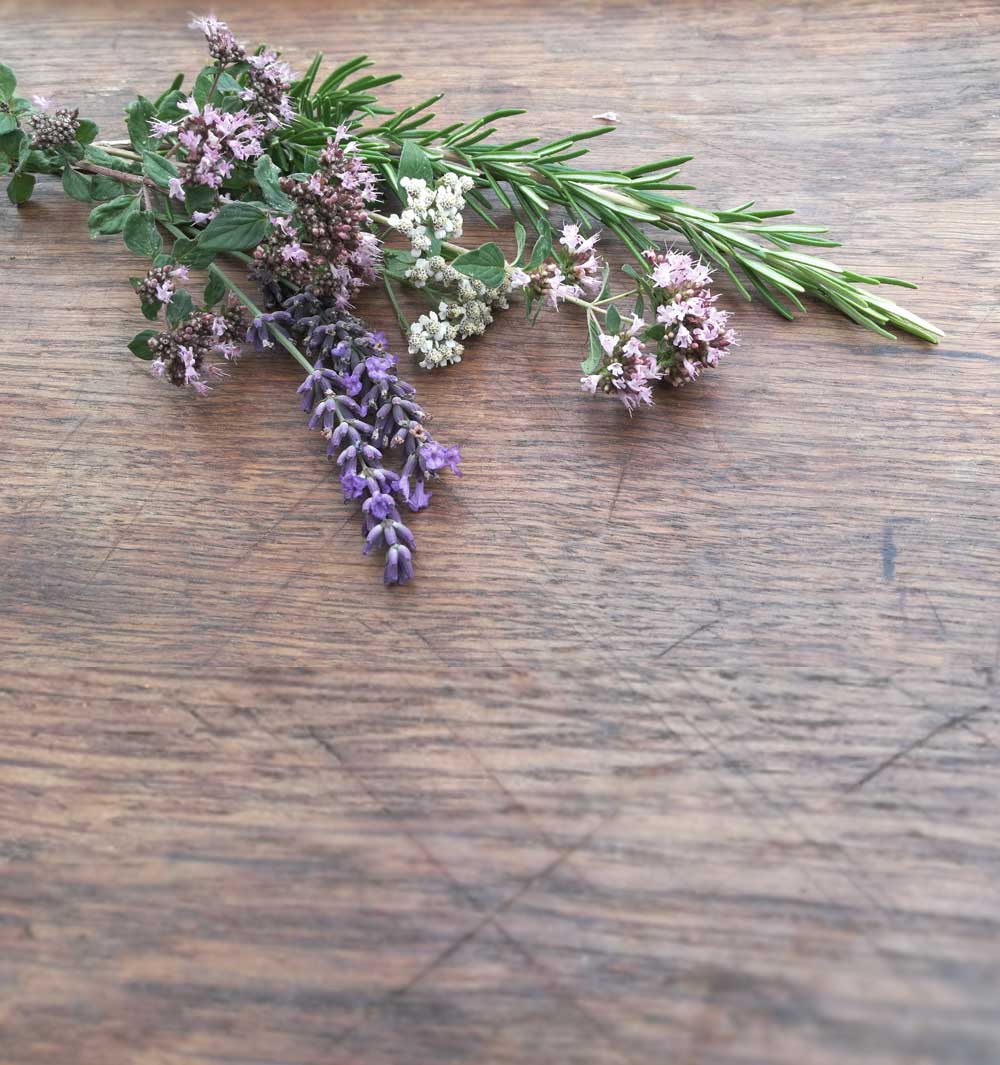Programs
Western Herbal Medicine


Western Herbs in Chinese Medicine
“Der westliche Kräuterkurs mit Birgit und Ute war einfach wunderbar. Wir haben sehr viel über Kräuterkunde und den Einsatz der Kräuter in der TCM gelernt. Es wurden immer Fallbeispiele besprochen und dazu die entsprechende Kräuterrezeptur entwickelt. Am besten fand ich persönlich, nach der bereits abgeschlossenen TCM Ausbildung, dass durch die zusätzliche westliche Kräuterausbildung noch einmal alles gefestigt werden konnte, wie z.B. Symptome und Krankheitsbilder in die chinesischen Kategorien einzuordnen. Da dies für eine gute Diagnosenstellung einfach die beste Voraussetzung ist.
In der Corona Pandemie lief der Unterricht über vorbereitete Videos und einen Tag live Unterricht über Zoom Online. Der Vorteil war hier, das empfanden wir alle, dass der Unterricht per Video absolut flexibel in der Zeiteinteilung war und mehrmals angeschaut bzw. bei Unaufmerksamkeit zurückgespult werden konnte. Fragen wurden dann über Zoom Live gestellt. Die gute Qualität des Unterrichtes war somit prima gewährleistet. Der Nachteil liegt klar auf der Hand, das persönliche Treffen fiel weg und hat uns allen gefehlt… Wir danken ganz herzlich Birgit und Ute für den tollen Unterricht und wünschen vielen weiteren Teilnehmer*innen auch das Westliche Kräuter Fachwissen als Bereicherung für ihre Praxis“.
Western herbs in the TCM – Advanced seminar
– Qi and blood mover
Birgit Bader, Ute Henrich
The relationship between Qi and Blood is often described as follows:
When the Qi moves, the blood flows to it; when the Qi stagnates, the blood clumps together.
If Qi is weakened or stagnant, the blood lacks traction and the blood stagnates.
In this lesson block we want to introduce plants that move Qi and blood. We will meet plants we have already met and get to know new plants.
• The individual plants are explained and discussed in detail in TCM in their entirety, i.e. ingredients, energetics and effects.
• In order to perceive the plants with all our senses, we taste teas, tinctures or individual plants. In this way, the qualities can be better known and experienced.
• As part of the lesson, tea recipes are developed using case studies.
Participation requirements:
Participation in the basic seminar Western Herbs Module I and Module II
Birgit Bader is a passionate naturopath and herbalist.
Working in her own practice in Bräunlingen in the Black Forest since 2002. Her work focuses on Western herbs in TCM and the various forms of TCM therapy.
2008-2009 Training in Western herbs with Eva Mosheim-Heinrich. Afterwards, ongoing further training with Eva Mosheim-Heinrich.
Lecturer and lectures on the topic of Western herbs in TCM and various other TCM topics
Authorship: 2019 “Basic Guide to Western Herbs in Chinese Medicine” in cooperation with Ute Henrich
Ute Henrich has been working as a naturopath in Rottweil since 2003.
The focus of her treatment is TCM, but also other forms of therapy.
Herbalist with passion for several years.
Lecturer on various topics, since 2012 focusing on western herbs in TCM.
The signature of a plant contains surprising information for experienced observers. Shape, color, structure, location and growing season can provide information about the medicinal-therapeutic qualities, mode of action or place of action of the medicinal plant.
Duration
3 days – 24 hours
Hours
Saturday and Sunday 9:00-18:00
Monday 9:00-15:00
Saturday 7th – Monday 9th of December 2024
Birgit Bader, Registered German naturopath since 2002 in private practice in Bräunlingen, Black Forest. Trained 2008 – 2009 in Western herbs in TCM under Eva Mosheim-Heinrich; continuing studies with Mosheim-Henrich. Teaching and lecturing on Western herbs in TCM since 2012.
Ute Henrich has worked as a Registered German naturopath in Rottweil since 2003. Specializes in TCM among other treatment methods; passionate herb lady for some years. Teaching spans various topics with a focus on Western herbs in TCM since 2012.
Participation in the basic seminar Western Herbs Module I and II
550,- Euro
440,- for AGTCM members
495,- for SBO-TCM members
Find additional Information about the AGTCM membership here.
Westliche Kräuter in der chinesischen Medizin
Basisleitfaden
Birgit Bader und Ute Henrich
ISBN 978-3-947566-67-9
https://shop.mgo-fachverlage.de/westliche-krauter-in-der-chinesischen-medizin.html
